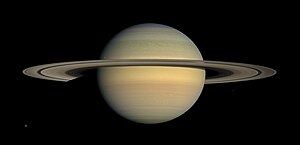What Is a Planet?
Fights over the best definition of a term are often a quagmire: there is no "correct" or "incorrect" definition in the same sense that there is a correct answer to what 2 + 2 equals. Instead, definitions are either more or less useful. If someone tries to define "animal" as "any entity in the physical universe," that definition is not wrong in the same sense the answering "5" to the 2 + 2 problem is wrong. The right attack on that definition is to point out that it renders the word "animal" less useful than does the currently prevailing definition.
"Common usage" is one factor in deciding how we should define a term. All other things being equal, we should defer to common usage. But common usage is not a trump card that defeats all other considerations.
For instance, when Copernicus forwarded his heliocentric model of the solar system, he was, among other things, offering a new definition of "planet." For many centuries before him, "planet" meant "a celestial entity that wanders among the fixed stars." The planets, under that definition, were the Sun, the Moon, Mercury, Venus, Mars, Jupiter, and Saturn. And please note: so long as we accept that definition of "planet," that list is correct. (Yes, it is incomplete, missing other "planets" that would only be discovered with telescopes.)
Copernicus's system changed that definition to "major celestial objects orbiting the sun." At the time he did this, his new definition certainly violated common usage! But it would not have been a cogent complaint about his work to say, "But Nicolaus, 'a wanderer amongst the fixed stars' is THE definition of a planet!"

As someone who doesn't like certain labels and who doesn't like the thought of certain uses of certain labels possibly applying to certain things, I really hope this isn't true.
ReplyDeleteThat what isn't true?
DeleteThis idea that labels are not true or false.
DeleteI was talking about something with my son a while ago, and realized that I could define other physical constants if we stipulated what "one second" was. So then I looked up the official definition, and saw that it had changed over time. Obviously people in the year 1800 had a pretty good idea of what "one second" was, but they weren't using the current SI definition: "the duration of 9 192 631 770 periods of the radiation corresponding to the transition between the two hyperfine levels of the ground state of the caesium 133 atom."
ReplyDeleteSo I thought that was pretty awesome, when I thought about how the definition itself changed. It's not that we came up with better ways of measuring, the way we could refine "the circumference of the Earth" or "the charge on an electron" over time. No, the very definition itself changed.